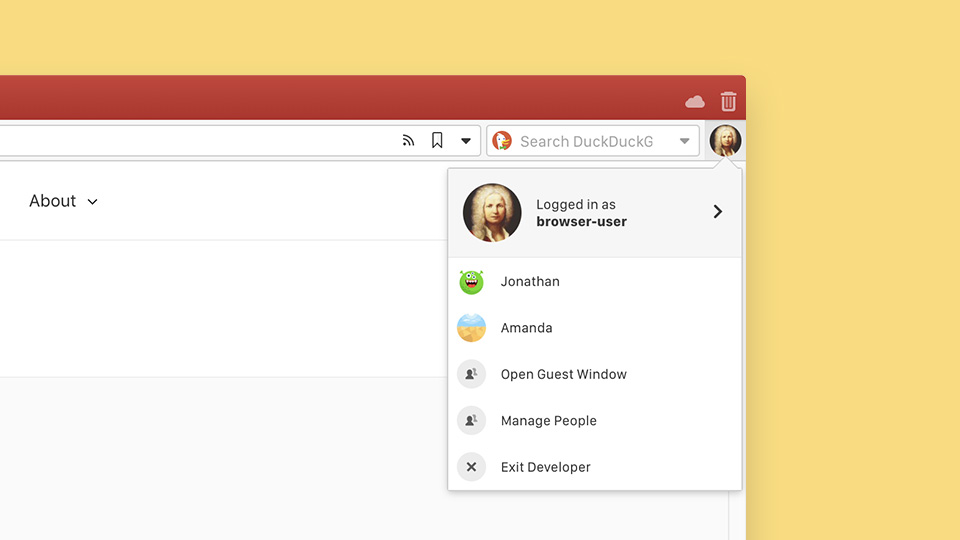Yesterday, Vivaldi released the latest version of their browser, Vivaldi 2.6, with two striking features – privacy and customization. These features will allow users to block abusive ads and feel safe on the web. Also, Vivaldi 2.6 provides users with many customization options for creating multiple personalities of users without logging into a different operating system. There are also other improvements such as filter saved passwords, visually enhanced search field and more.
Vivaldi 2.6 is available as a free download for Windows, Mac, and Linux. Users can also import data from a variety of browsers, including Opera, Chrome, Edge, Internet Explorer and — via HTML export — Firefox.
Browse safely with no abusive ads
Vivaldi’s new functionality allows users to block adverts that use abusive technologies such as fake messages, misleading site behavior, etc. Users can use this feature to stop ads from sites, that are causing problems like, pop-ups that prevent them from leaving the site.
Vivaldi 2.6’s built-in ad-blocker, will have an enabled-by-default blocklist, which can be switched off in the Privacy section of the Settings menu. This list is hosted by Vivaldi’s servers and is updated automatically and applied to intrusive websites so that users don’t have to contact the server each time. This blocklist is hosted on its end-to-end encrypted servers.
Here’s how to manually enable or disable abusive ad blocking:
- Select Vivaldi Menu > Tools > Settings, or use Alt-P to open the Preferences using the shortcut.
- Switch to the Privacy section.
- Remove the checkmark from Block ads on abusive violating sites. This turns the functionality off in the Vivaldi browser.
In a statement to Packt, Vivaldi CEO, Jon von Tetzchner said, “We try to keep our users safe and will continue to look at more options to protect them. The way that we’ve implemented this functionality is an interesting step in the direction of relying less on third-party services.”

Image source: Vivaldi
More personality to User Profiles
In March this year, Vivaldi had introduced support for User profiles which had different set of extensions, bookmarks, speed dials, cookies, history, and more. With this update, Vivaldi has brought in more customization options for users.
Users can now create multiple “users” without logging into a different operating system, user account, or maintain multiple standalone installations of Vivaldi. This update brings a more personal touch for non-synced profiles, with the following additions :
- Update the avatars
- Add and delete profiles in the popup
- Edit avatar within the popup

Image source: Vivaldi
Other improvements
Filter saved passwords: Users can find their saved passwords by filtering either through account names or websites.
Keep a tab on unread tabs in the Window Panel: When a link is opened on a background tab, users will be notified in the Window Panel if it is unread. The unread tab counter will inform precisely the number of tabs unattended.
Navigate faster with ‘Find in Page’ : Users can find a specific word or a term in a lengthy article with ‘Find in Page’ option.
Visually enhanced Search Field: The magnifying glass on the Search Field on the right side of the Address Bar of Vivaldi now displays the favicon of the active search engine, helping users to easily identify the search engine.
Support for headphone: A highly requested feature by users – Vivaldi will support headphone devices.
Performance improvement: Vivaldi 2.6 has increased its performance to help users working with multiple tabs. Now, a user can easily tile tabs into split-screen views or move tabs to new windows. Opening, closing, and resizing of Panels in the sidebar is also much snappier.
The privacy feature of Vivaldi comes at a time when many browsers are being cornered for having privacy issues. Earlier this month, Chrome had made it clear that its ad blocking extensions will only be available for enterprise users. This move by Google had garnered much criticism. Vivaldi, on the other hand, is getting praised for its new privacy-centric features. It also comes with DuckDuckGo search engine as default, which doesn’t track or profile users.
The best browser just got better! Vivaldi browser blocks abusive ads, improves profile management and more https://t.co/9u9GwfTmaD @vivaldibrowser
— Kenny Heimbuch (@rankbrite) June 20, 2019
A user on Hacker News states that “I’m seriously thinking of switching to Vivaldi now as my default development browser. It has incredible keyboard support and feature wise closest to the old Opera browser, which till date is the first browser I feel in love with.”
Another user on Hacker News says that “I changed to Vivaldi about a year ago and it’s the first browser ever which isn’t constantly slowing down with time and I’m not constantly thinking should I change again.”
Also, questions are being raised on Vivaldi, for linking ‘abusive ads’ to Google’s guidelines for abusive ads.
A user on Hacker News comments that “The “abusive ads” text links to Google’s guidelines for abusive ads: is this what Vivaldi is using to determine what’s “abusive”?”
There are others who prefer Firefox over Vivaldi due to the latter’s slow-moving nature. A user explains that “I switched from Chrome to Vivaldi and back to Firefox for two reasons:
1) Vivaldi rendering performance is the worst I’ve ever seen in a browser. No idea how they managed that using webkit, but some sites would make tabs crash on a high end system.
2) The web developer tools are unusable due to bugs.
3) Fixing simple but impactful bugs takes too long.
I really like their useful and plenty settings for everything, but 1) and 2) make it a no go for me.”
For more information read Vivaldi’s blog.
Read Next
Tor Browser 8.5, the first stable version for Android, is now available on Google Play Store!
All about Browser Fingerprinting, the privacy nightmare that keeps web developers awake at night










![How to create sales analysis app in Qlik Sense using DAR method [Tutorial] Financial and Technical Data Analysis Graph Showing Search Findings](https://hub.packtpub.com/wp-content/uploads/2018/08/iStock-877278574-218x150.jpg)


